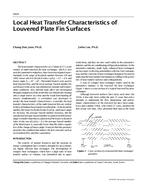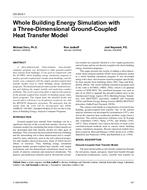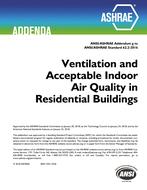Wind driven ventilation is passive cooling strategy that can be a powerful ally to reduce energy consumption in buildings, but it requrires specialized knowledge and time investment. In order to make more available to designers there is the need for reliable and simplified guidelines. However current ventilation standards require further developments since they only regulate minimal air change rate or percentages of window area, without considering other inmportant parameters. In this regard, we investigated window dimensioning to improve thermal comfort considering wind driven ventilation on low-rise buildings. The parameters evaluated were opening area, window location (floor plan and height), and building surrounding obstruction. The base model for this study was a residential building located in the city of Piracicaba-Brazil, that was further modified to simulate diverse windows situations. The simulations were performed at Energy Plus with support of CFD (CFX) to obtain pressure coefficient values. In order to dertermine which cases provide the better conditions of thermal comfort Degree Days of Thermal Disccomfort by Heat was evaluated. The results indicate the best window sizes for each situation, and show that proper window dimensions need to be different depending on the window location, and building surrounding obstructions. Finally, the work provide simplifed guidance to the windows design, thus, it stiumlates the quality of the built environment and contributes to decrease energy expenses with artificial conditioning.
Citation: Second International Conference on Energy and Indoor Environment for Hot Climates, Doha, Qatar, February 2017
Product Details
- Published:
- 2017
- Number of Pages:
- 8
- Units of Measure:
- Dual
- File Size:
- 1 file , 640 KB
- Product Code(s):
- D-HCC17-16


